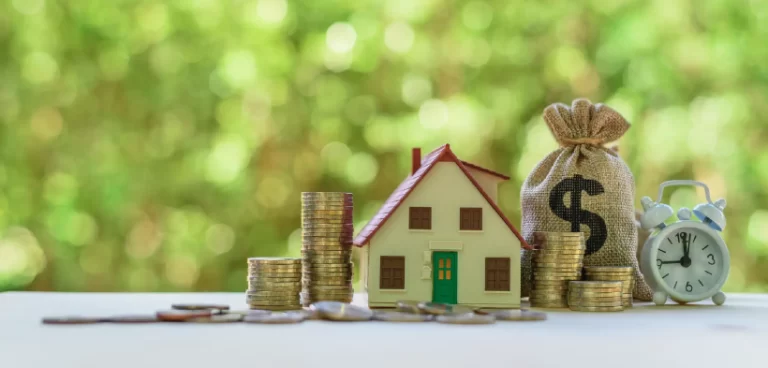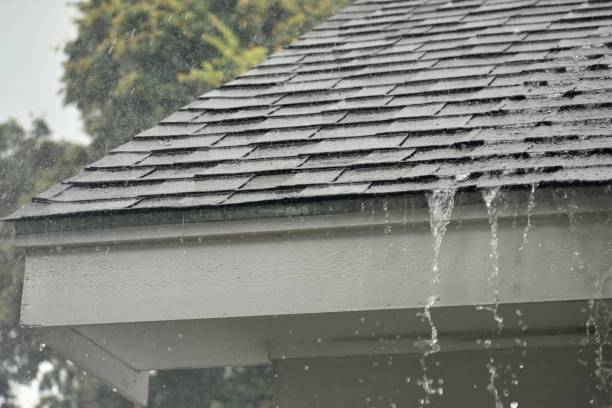What is the Penalty for Selling a House Before 2 Years?
Selling your house before two years sounds straightforward but can have potential financial repercussions.
Short-term gains come at a cost, so what happens if you sell your house before 2 years and what is the penalty for selling a house before 2 years?
The major issue is incurring capital gains tax, knowledge is your shield. Informed decisions pave the way, ensuring you navigate the real estate market with confidence.
Table of Contents
Can I Sell My House Before 2 Years?
Yes, you can legally sell within two years, but financial considerations emerge. Swift sales may trigger capital gains taxes, impacting investors and homeowners facing unforeseen circumstances. In addition, you may not have allowed your property to appreciate in value enough, potentially leading to a loss.
Additional reading: how soon can you sell a house after buying it
What Happens if I Sell My House Before 2 Years?
If you sell your house in less than 2 years, you will face capital gains taxes on any profits since you need to have lived in the profit for at least two years to be exempt. Your property is then classed as your “primary residence” and won’t be subject to capital gains tax.
Note that you need to have lived in the property for at least 24 months in the last 5 years.
It’s imperative that you consult with a qualified tax attorney to discuss your situation. We are unable to advise you of your tax situation and don’t provide tax advice.
What Is the Penalty for Selling a House Before 2 Years?
The penalty for selling a house before 2 years depends on the state you reside in and also your income tax bracket. This can be as much as 37% for high-income earners. Everyone’s situation will be different and singles and couples are exempt from the first $250,000 and $500,000 gains respectively.
Additionally, selling within a short timeframe incurs various costs, including real estate agent fees, staging, inspections, repairs, and closing costs, all of which can significantly reduce profits or even result in a loss.
If you’re in South California and are looking for a hassle-free option, consider reaching out to us – we buy houses for cash.
How Can I Avoid Capital Gains Tax Before 2 Years?
Avoiding capital gains tax before two years requires strategic planning. While it’s challenging to evade these taxes completely, there are legal avenues to minimize the impact:
- Make the property your primary residence
- Qualify for a 1031 exchange
- Invest in qualified opportunity zones
- Offset gains with losses
- Seller financing
Make the Property Your Primary Residence
If the property is your primary residence for two years, you may qualify for the Section 121 exclusion. This homeowner-friendly provision allows single filers to exclude up to $250,000 married and filing jointly up to $500,000 in capital gains from their taxable income.
Ensuring your property is genuinely your primary residence is key, as this exclusion is designed to benefit those who use their homes as such. Consequently, you can minimize what you owe in short-term capital gains and navigate the potential costs of selling more effectively.
1031 Exchange
A 1031 exchange is a tax-deferred strategy enabling you to reinvest the profits from the sale into a similar property. This not only provides a valuable opportunity for property investors but can also help you avoid tax penalties and defer the need to pay capital gains tax until you eventually sell the new property.
However, it’s crucial to adhere to the strict guidelines and deadlines associated with a 1031 exchange to maximize its benefits while minimizing what you owe in capital gains tax.
This strategic move in the world of home selling requires careful planning, a thorough understanding of the tax implications, and often the assistance of tax professionals.
Invest in Qualified Opportunity Zones
Explore opportunities in qualified Opportunity Zones, which are specially designated geographical areas offering tax advantages. Investing in these zones can provide potential capital gains tax deferral, making it an attractive option for those looking to optimize tax outcomes while contributing to community development.
By delving into this strategy, you not only explore potential long-term capital gains deferral but also potentially minimize what you owe in taxes on the proceeds of your home sale.
However, it’s essential to understand the specific requirements and regulations associated with these zones to make informed investment decisions and ensure a smoother journey.
Offset Gains with Losses
This proactive strategy not only helps offset the gains on your property but can also contribute to a potential capital gains tax exemption.
By delving into this approach, individuals looking to sell their home may find a way to minimize the costs of selling a home. However, this strategy requires careful planning and consideration of your entire investment portfolio to ensure the most effective tax outcome and navigate the complexities of capital gains tax liability.
With this in mind, we highly recommend you consult with a tax professional — we are unable to offer tax advice.
Seller Financing
Seller financing is a creative solution, allowing you to spread the gain over several years. By structuring the deal to receive payments over time, you may mitigate the immediate impact of capital gains taxes.
Seller financing provides flexibility for both parties involved, but it’s essential to formalize the arrangement legally and financially to protect the interests of both the buyer and the seller. Leverage the insights from a fair market value calculator to help with this.
Reducing Capital Gains Tax on House Sale Before 2 Years
Consider these tips to make wise decisions and possibly keep more of your property’s profits:
Extend Ownership Period
Hold onto your property for more than two years to avoid the short-term property sales penalty. This strategic approach can potentially minimize the impact of less than two years of ownership on your financial outcomes.
It’s a strategic exemption that allows you to retain a more significant portion of your profits.
Strategic Timing
Sell your home at the right time to potentially avoid taxes on your profits. Consider closing the deal in the sweet spots like November or December—a smart move to sidestep capital gains tax on any profit.
Timing can be crucial in optimizing your financial outcomes, especially considering your tax bracket and the potential impact on your home before two years of ownership
Utilize the Second-Home Strategy
Considering purchasing a new home or a new property within 180 days and residing in it for a substantial two-year period, and then selling the initial property.
This thoughtful strategy aligns with the Section 121 exclusion, providing potential tax benefits.
Explore Rental Options
Transform your property into an income generator by renting it out, creating a revenue stream.
Exercise patience, waiting for the opportune moment to sell. By generating rental income and biding your time, you may find a more favorable market or improved financial circumstances, effectively reducing the immediate impact of capital gains taxes on the sale of your property.
This approach can also impact the amount of tax owed, offering potential benefits when considering factors like ordinary income, selling a house within a specific timeframe, managing the amount of tax payable, navigating the necessity to pay short-term capital gains taxes, and optimizing your tax return.
Importantly, this strategy allows you to legally sell your home or property, ensuring a smooth and compliant transaction while strategically considering your tax implications.
What Is the Tax Penalty for Selling a House Before 2 Years Affected By?
Navigating the tax penalty for selling a house before two years involves considering:
- How long you’ve owned the property
- State tax rate
Length of Ownership
We need to expand on the “2 years in 5” rule here and also note that your home must be your primary residence for this to qualify.
If your home isn’t considered your primary residence, then living in the property for at least 2 years in the last 5 years doesn’t apply; you simply won’t qualify for a capital gains tax exemption if the property isn’t your primary residence.
In addition, in the circumstances of applying the $500,000 married couple allowance, BOTH individuals need to meet the 24 months in the last 60 months requirement. There isn’t a sliding scale for the percentage of occupancy; it’s an all-or-nothing rule.
Furthermore, the 24 months occupancy doesn’t need to be consecutive… it just needs to be a cumulative timeframe within that 5-year period.
State Tax Rate
The tax rate of your state is a significant factor influencing the penalty for selling your house before two years. States like California, with high income tax rates, result in more substantial tax payments for early property sales.
Additionally, it’s worth noting that some states (AK, FL, NV, NH, SD, TN, TX, WA, and WY) do not impose a capital gains tax, providing a favorable condition for homeowners in those locations.
Is the Penalty for Selling a House Before 1 Year Worse?
The penalty for selling a house before one year can be worse since it’s classed as a “short-term capital gain” and is therefore taxed as ordinary income. This means that you won’t pay capital gains tax rates but a personal income tax rate, which is likely to be higher.
This means you’ll likely face a more significant financial impact on your profits if you sell within the first year of ownership than if you hold the property for a more extended period.
What if I Sell My Primary Residence Before 2 Years?
Selling your primary residence before 2 years may subject you to capital gains taxes since you won’t meet the “2 years in 5” rule. The IRS imposes penalties on selling a home before 2 years, with short-term ownership typically resulting in higher tax rates.
How Does Selling Investment Property Before 2 Years Differ?
When selling investment property before two years, the dynamics change. Capital gains tax on real estate investment property becomes a significant consideration, with short-term gains often taxed at higher rates.
Investors may explore strategies like how to sell rental property without paying taxes, such as utilizing a 1031 exchange, to optimize financial outcomes while navigating the complexities of property transactions.
What Is the Penalty for Selling Your House Before 2 Years? Final Points
If you find yourself needing to sell within two years of buying, it’s crucial to be aware of the key aspects before taking the plunge. There are compelling reasons to avoid selling too soon—beyond the financial consequences, considerations involving mortgage payments, equity, and exceptions to the 2 out of 5 year rule come into play.
In essence, understanding the tax implications of selling a home for less than two years is paramount to avoid unexpected tax burdens. Ideally, holding onto your property is the wisest course of action.
Note that it’s vital you consult with a tax professional — our team are unable to offer tax advice.
Unfortunately, if circumstances necessitate a sale, homeowners may face unavoidable capital gains taxes.
If you’re in Southern California, consider selling to us for a fair cash offer. Contact our team today to find out more.










